a2ru 2019 National Conference
Theme
The 2019 theme, knowledges: artistic practice as method was an invitation to explore modes of knowing, especially as arrived through the discovery of artistic practice. This theme was anchored in, but not limited to, the following questions:
- How do artistic practices map onto other methods of knowledge production?
- If contemporary artists are trained from the outset to be critical of their medium(s), how might this critical reflection inform more discrete disciplines, which often treat academic form as neutral vessels for the delivery of content?
- What can researchers across the arts, sciences, and humanities learn from one another’s practices and approaches?
Featured Speakers
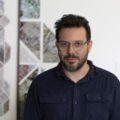

Assaf Evron’s work investigates the nature of vision and the ways in which it reflects in socially constructed structures, where he applies photographic thinking in various two and three-dimensional media. His work has been exhibited in galleries and museums internationally. Evron holds an MA from The Cohn Institute at Tel-Aviv University, as well as an MFA from the School of the Art Institute of Chicago where he currently teaches. He has received numerous awards including The Graham Foundation (2017), Israel lottery (2017), Artis (2016), The Gerard Levy Prize (2012), and The James Weinstein Fellowship from SAIC (2013). In 2019 He will exhibit a special project at the Mies Van Der Rohe McCorick House in Elmhurst and will have his first U.S. museum solo exhibition at MCA Chicago.
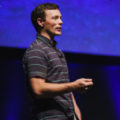

Domhnaill Hernon, director of innovation and creativity at EY, is an award-winning technology, innovation and creativity executive. Domhnaill received an undergrad in Aeronautical Engineering and a PhD in Aerodynamics from the University of Limerick and an executive MBA from Dublin City University, Ireland. He is the global lead and co-founder of a new imitative at EY to create the Cognitive Human Enterprise. This is a pioneering new approach combining massively multidisciplinary collaboration and full-spectrum diversity to maximize organizational cognitive flexibility. Prior to that he founded a new initiative to fuse art and engineering/science to develop solutions that humanize technology while at Nokia Bell Labs. Domhnaill’s work has been featured in Wired Magazine, Times Square, SXSW, Nasdaq, MWC, Ars Electronica, TEDx, Inspirefest to name just a few and he advises innovation and cultural programs globally. Source: MWC Barcelona
For more about Hernon, visit LinkedIn
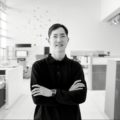

Andrew Kim is a manager in Workspace Futures for Steelcase Inc. Andrew is responsible for applying human-centered design methods to support new market strategies and product development efforts. His curiosity and passion revolve around the intersection of social behaviors, the built environment and technology. He has led vertical market research studies, which have included topics such as education, information technology, hospitality, and retail banking. His work involves researching corporate, education and healthcare environments, and his areas of interest include creativity, learning, and smart environments. Andrew has more than twenty years of experience developing products and services. Prior to joining Steelcase, he served as a strategist, technology lead and user experience lead for technology companies.
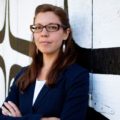

Sarah Hunt is an assistant professor in First Nations and Indigenous Studies and the Department of Geography at University of British Columbia-Vancouver. She is Kwagiulth (Kwakwaka’wakw) and spent most of her life as a guest in Lkwungen territories. Sarah’s scholarship in Indigenous and legal geographies critically takes up questions of justice, gender, self-determination, and the spatiality of Indigenous law. Her writing and research emerge within the networks of community relations that have fostered her analysis as a community-based researcher, with a particular focus on issues facing women, girls, and Two-Spirit people.
Dr. Hunt received her B.A. and M.A. from the University of Victoria and her Ph.D. from Simon Fraser University. In 2014, was awarded a Governor General’s Gold Medal for her doctoral dissertation, which investigated the relationship between law and violence in ongoing settler colonial relations in BC, asking how violence gains visibility through Indigenous and Canadian socio-legal discourse and action. She continues to build on this work, researching geographies of resistance and resurgence in the intimate, everyday relations of Indigenous people and communities.
Sarah’s writing has been published in numerous books and scholarly journals, as well as in research reports and popular media outlets. Her recent publications include “Access to Justice for Indigenous Adult Victims of Sexual Assault” (2017, co-authored with Prof. Patricia Barkaskas for the Department of Justice), “Representing Colonial Violence: trafficking, sex work, and the violence of law” (2016, in Atlantis), “Everyday Decolonization: living a decolonizing queer politics” (2015, co-authored with Dr. Cindy Holmes, in Journal of Lesbian Studies), “Embodying Self-Determination: beyond the gender binary” (2015, in the book Determinants of Indigenous Peoples’ Health in Canada: beyond the social) and “Ontologies of Indigeneity: the politics of embodying a concept” (2014, in Cultural Geographies). Her most recent publications can be found at ubc.academia.edu/SarahHunt.
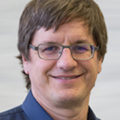

Brian McClendon is a Research Professor at the University of Kansas after spending 2 years at Uber leading their Maps and Business Platform efforts. For 10 years prior, Brian was a Vice President with Google and led the entire Geo business unit including Google Maps, Street View and Google Earth. He was a co-founder and angel investor in Keyhole, Inc., a geospatial data visualization company that was purchased by Google in 2004 which led to Google Earth. In the 1990s, he spent 8 years at Silicon Graphics, designing 3D graphics workstations. He was inducted into the National Academy of Engineering in 2015 and holds a degree in electrical engineering from the University of Kansas. He ran for Kansas Secretary of State in 2018.


Nicholas Mirzoeff is a visual activist, working at the intersection of politics, race and global/visual culture. Among his many publications, The Right to Look: A Counterhistory of Visuality (2011) won the Anne Friedberg Award for Innovative Scholarship from the Society of Cinema and Media Studies in 2013. How To See The World was published by Pelican in the UK (2015) and by Basic Books in the US (2016). It has been translated into ten languages and was a New Scientist Top Ten Book of the Year for 2015. His new project, The Appearance of Black Lives Matter was published in 2017 as a free e-book, and in 2018 as a limited edition print book with the art project “The Bad Air Smelled Of Roses” by Carl Pope and a poem by Karen Pope, both by NAME Publications, Miami. Since Charlottesville, he has been active in the movement to take down statues commemorating settler colonialism and/or white supremacy and convened the collaborative syllabus All The Monuments Must Fall. A frequent blogger and writer, his work has appeared in the New York Times, the Guardian, Time and The New Republic. Mirzoeff is in Media, Culture, and Communication at NYU/Steinhardt.
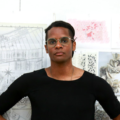

Ron Morrison [Elegant Collisions] is an interdisciplinary designer, artist, and researcher working across the fields of human geography, digital technology, and urbanism. Their practice works to investigate the generative ways in which the unassimilable refigures, complicates, and dissolves our understandings of race + geographic space as fixed and knowable. Focusing on boundaries, subjectivity, and protection I look for the ways that fissures and inconsistencies can allow for emergent moments to practice new spatial relationships and epistemologies. From these seemingly dissonant spaces we learn to rework and retune systems towards an increased potential for collaboration and action, from the quotidian to the phenomenological. With a strong background in community development and social advocacy, they believe that people should have full access to shaping their cities and communities and see design as a medium for creating knowledge and moving beyond paralysis in the face of complexity. From building open source platforms to upend the continued practice of solitary confinement to crafting community based archives to combat gentrification, their work investigates cartographies of slow violence, cybernetics, unassimilable data, and blackness.
They have been a collaborator with design teams that implemented projects in New Orleans, Ghana, Colombia, Ethiopia, New York, and Venice and have had work featured in AIA New York, the UN World Urban Forum, and the Tribeca Film Festival. Ron holds degrees in Psychology and Gender Studies, as well as a graduate degree in Design and Urban Ecologies from Parsons School of Design. They are currently an Annenberg PhD Fellow in the School of Cinematic Arts at USC in Los Angeles.
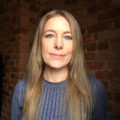

Danielle Roney’s artistic practice decodes spatial narratives to expose the impact and potentialities of our technological society. Roney’s international projects include, Global Portals, transnational, networked public spaces at TEDGlobal 2005, Oxford, England and Johannesburg, South Africa 2007; the Beijing off-biennale ‘Convergence’ and productions in Venice (IT), São Paulo, and Istanbul. Her project, Opposing Views, presented the visualization of conflict through debate upon the media façade of the Museum of Contemporary Art, Zagreb, with the International Symposium of Electronic Arts in conjunction with the Istanbul 12th Biennale. Her work has been exhibited nationally, while public realm projects span live architectural mapping and permanent sculpture commissions. Roney was the designer of the U.S. Pavilion, Venice Biennale of Architecture 2010 with the High Museum of Art. She studied sculpture and digital media at the University of Georgia and currently lives and works in Brooklyn, NY.
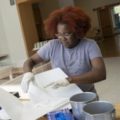

Fatimah Tuggar is a multidisciplinary artist who uses technology as both medium and subject in her work to serve as metaphors for power dynamics. She combines objects, images, and sounds from diverse cultures, geographies, and histories to comment on how media and technology diversely impact local and global realities. Tuggar’s work has been widely exhibited at international venues in over twenty-five countries and has been the subject of various panels and articles. Her body of work has also been integrated as parts of academic curricula, in multiple disciplines and discussions. Tuggar’s art education covers three continents and a broader range of disciplines, traditions, processes, and materials. She is currently working on a solo and monograph with the Davis Museum at Wellesley College which are both entitled “Home’s Horizon.”
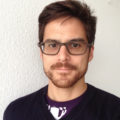

Andrew Yang transdisciplinary artist and scholar who works across the sciences, art, and history to explore our engagement with natural culture. His work has been exhibited from Oklahoma to Yokohama, including commissions for the 14th Istanbul Biennial (2015) and the Museum of Contemporary Art Chicago (2016). Yang’s writings span ecology, aesthetics, and philosophy and can be found in Art Journal, Leonardo, Biological Theory, and Antennae. He holds a PhD in biology, an MFA in visual arts, and is an Associate Professor at the School of the Art Institute of Chicago.
Host
The University of Kansas, host of the 2019 a2ru conference, aims to infuse the arts into its research culture by advancing interdisciplinary projects across the sciences and humanities. This is accomplished through existing structures, such as the Integrated Arts Research Initiative (IARI) funded by the Andrew W. Mellon Foundation at the Spencer Museum of Art, The Commons, and the Research Excellence Initiative through the College of Liberal Arts and Sciences. The exhibition and dialogue among artists and scholars developed through the IARI colloquium (November 6, 2019) launched the 2019 a2ru national conference.
Colloquium
The knowledges Integrated Arts Research Initiative Colloquium (November 5-7, 2019) served as a pre-conference for the Alliance for the Arts in Research Universities (a2ru) national gathering hosted by KU. Reflecting on the investigations and accomplishments of the Integrated Arts Research Initiative during the previous three years, it was also an opportunity to look ahead to future explorations.
Keynotes and Plenaries
“Whiteness: What is to Be Done?”
Nicholas Mirzoeff, New York University
Both the Black Lives Matter and Rhodes Must Fall movements called on white people to undertake the work of decentering whiteness and dismantling white supremacy. Those identified or identifying as white need to recognize their own complicity with these power structures, transforming the knowledge of hierarchy into a realization of what it means for themselves and for those excluded. The problems to be engaged are manifest and manifold. The situation has intensified in this new moment of authoritarian nationalism in tension with a global majority that is young, urban and online. Here I want to think about how to understand and engage with these issues via the renewed visibility of colonial statues and monuments; the aesthetics of walls and borders designed to exclude migrants; and the new rendering of biometric whiteness via the digital collection of fingerprints and facial images. In short, whiteness has an infrastructure of visibility and appearance. These modalities of racialization have previously been engaged with the Barbadian poet George Lamming’s 1961 concept of the “way of seeing,” a mutual and productive exchange in real space. How might that work in the present crisis? Can art spaces serve as sites to prefigure “levelly human” relations? Or does the institution sanitize and defer action? What is to be done?
“Urgencies and Upheavals“
Saralyn Reece Hardy, Spencer Museum of Art, University of Kansas
Assaf Evron, Danielle Roney, Fatimah Tuggar, and Andrew S. Yang, knowledges Exhibiting Artists
The knowledges artists discussed the aspects of their research and work that feel most dangerous and yet most urgent. How do artists model ways of working that are both improvisational and deeply structured? What are the architectures that institutions can contribute that provide a safety net charged with learning?
“Partners in Creating Knowledge”
Ben Knapp, Virginia Tech
Domhnaill Hernon, Nokia Bell Labs
Andrew Kim, Steelcase
Brian McClendon, University of Kansas
Corporate representatives spoke about the critical need for arts, humanities and design skills in these industries, and their thoughts on building a pipeline for students. They also discussed the training and skills students need to work through essential industries to enhance creativity, ethics, and innovation for a better world.
